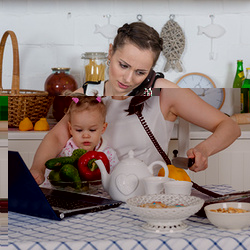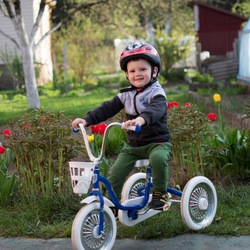Is your child genius or “ordinary”?
 Of course, every parent believes that his child is “the very-best.” The smartest, smartest, most artistic. Why should there be no secret? Just brilliant. This is all the more I want to believe because we live in an age of competition, when it is believed that the one who knows more can win. In fact, psychologists say, the key to a child’s future success does not lie in good learning and all-round knowledge. What is it? In realistic expectations of his parents!
Of course, every parent believes that his child is “the very-best.” The smartest, smartest, most artistic. Why should there be no secret? Just brilliant. This is all the more I want to believe because we live in an age of competition, when it is believed that the one who knows more can win. In fact, psychologists say, the key to a child’s future success does not lie in good learning and all-round knowledge. What is it? In realistic expectations of his parents!
“The drama club, the circle on the photo, and I still sing hunting”
My neighbor on the landing, the mother of a charming 5-year-old baby, is sure that her daughter is already “too developed” for kindergarten, and was going to send her to school in September. It took a month of persuasion of various child psychologists, so that the neighbor finally understood: her daughter is really developed – just for her own and for her own age.
Another friend of mine every day carries her son to the karate section at the other end of Moscow. The road takes a total of 3 hours. The result of this truly hellish work is a collection of sports trophies and a 12-year-old boy who has no friends at all and who never (!) Walks in the yard with other boys. The question is, do these parents really think first of all about the happiness of the child? Or something else?
These examples are not unique, as it may seem. It became just fashionable to have a comprehensively developed child prodigy. At the same time, only a few people think about the cost of a child with such a “genius”. Is it really scary to have an “ordinary” child? Especially if this child is cheerful, healthy, happy, he has many friends. Even if he doesn’t study so well, he doesn’t know how to dance two-step, and it’s hard to guess exactly what he drew in his drawing.
According to experts, only about 5% of children are truly gifted – and, as a rule, only in any one area. The rest are ordinary children, more or less developed, but no less remarkable for that. Unfortunately, many parents do not want to have just an “ordinary” child. And so we rush with our child from one section to another and turn the child into a walking “resume” – confirmation of our own solvency. The success of the child demonstrates the success of the parents. And the child begins to think that nothing of what he does does not fully satisfy his parents. So there are neuroses and complexes.
The parents themselves are also under considerable pressure: every day they are told from the TV screens and magazine pages what they need to do in order to develop intelligence, memory, a child’s speech, to raise geniuses, etc. etc. Parents have no time just to go for a walk with the child, admire the autumn nature and feed the pigeons. Why, when during this time a child can learn 50 new English words?
How to “let go of the reins”:
1. Understand that “ordinary” is the norm. Do not feel guilty that all friends of your child attend art school, but he does not. If your child has artistic talent, he will show himself sooner or later, and then it will make sense to talk about art school.
2. There are many types of giftedness. And the talents of the child do not necessarily manifest in the school or section. Your child may have abilities and a love for gardening, design, handling animals, peer leadership, etc. These are also useful abilities and skills, but they don’t have to devote all their free time to a child.
3. Think in perspective. Does your child really need what he is required to learn in his life? Not everyone can become world famous musicians or artists. If there is a talent, it will manifest. And not all famous people have talent manifested in early childhood. Einstein, for example, went to school badly.
4. Do not start too early. A three year old kid does not need to know English. Yes, he can learn a few words, but he will not think on it, no matter how early you start – for this you need a language environment. Does your kindergarden like to play ball? Well, let him play for himself, for that he doesn’t need to write him down to the football section at all. Children should remain children, no matter how much their parents would like to have a world champion at home.
5. Give the child the right to decide for himself. Let the child himself or with the help of your tips and advice will choose what it is more interesting for him to do in his spare time. Just let this time really be free, and not due to communication with friends, walks, favorite games.
But maybe your child is a genius?
Here are some early signs that may indicate a preschooler’s special talent:
So, it is likely that your child may be a genius if he:
– learns quickly and easily remembers new information;
– seems more mature for his age;
– has a large vocabulary or already independently reads;
– does not recognize the authorities;
– experiments in solving any problem;
– prefers older friends;
– extremely sensitive;



